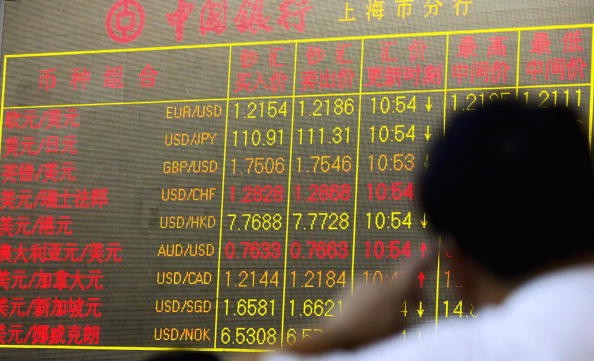The People's Bank of China announced on Tuesday, Feb. 7, that the country's foreign exchange reserves dropped by $2.998 trillion in January, which put the reserves below the symbolic $3 trillion threshold, the New York Times reported.
Three years ago, the country's forex reserves totaled $4 trillion, at a time when its economy growing rapidly. The last time it reached $3 trillion was in early 2011.
For years, China has been trying to manage the value of the renminbi, keeping it stable, while huge amounts of other currencies flowed into China to buy its manufactured products which include electronics, toys, and shoes, among others.
The value of the renminbi should have risen up against the dollar and other currencies, under global finance rules, but instead, China maintained its currency's value to help Chinese manufacturers compete overseas.
This complicated process enabled China to hold large sums of various currencies for its reserves, the report said.
In June 2014, China's reserves reached a total of nearly $4 trillion, which provided the country enough financial buffer in times of trouble. However, this has raised deep concerns in the U.S., including Trump who expressed his alarm over China's monetary handling during his campaign.
Fall in Forex Reserves
Compared with the rest of the world, China's trade surplus is still huge and about $40 billion to $60 billion is flowing into the country, with exports surpassing imports. But the dynamics changed as the country's economic growth slowed down.
As China's economy slowed, many companies and individuals moved their money to invest overseas or for safekeeping. This resulted in the weakening of the yuan, which drove the central bank to impose restrictions on the outflow of capital.
To maintain the renminbi's value stable and keep money within the country, China propped up its currency by drawing billions of dollars from its reserves.
Although the decline in the country's foreign currency reserves has reached $3 trillion, it has not fallen to the risky levels. Besides, it has other wealth reserves, such as savings, the report said.
However, it is still not safe as the country must have enough reserves that it can use in times of financial trouble.
The report said that the decline in reserves indicates the direction of the Chinese economy, which means that there is a decrease in investor's interest in China.
Based purely on trade flows, the renminbi is undervalued, compared to the dollar. On the other hand, the International Monetary Fund considers the Chinese currency as fairly valued.




























